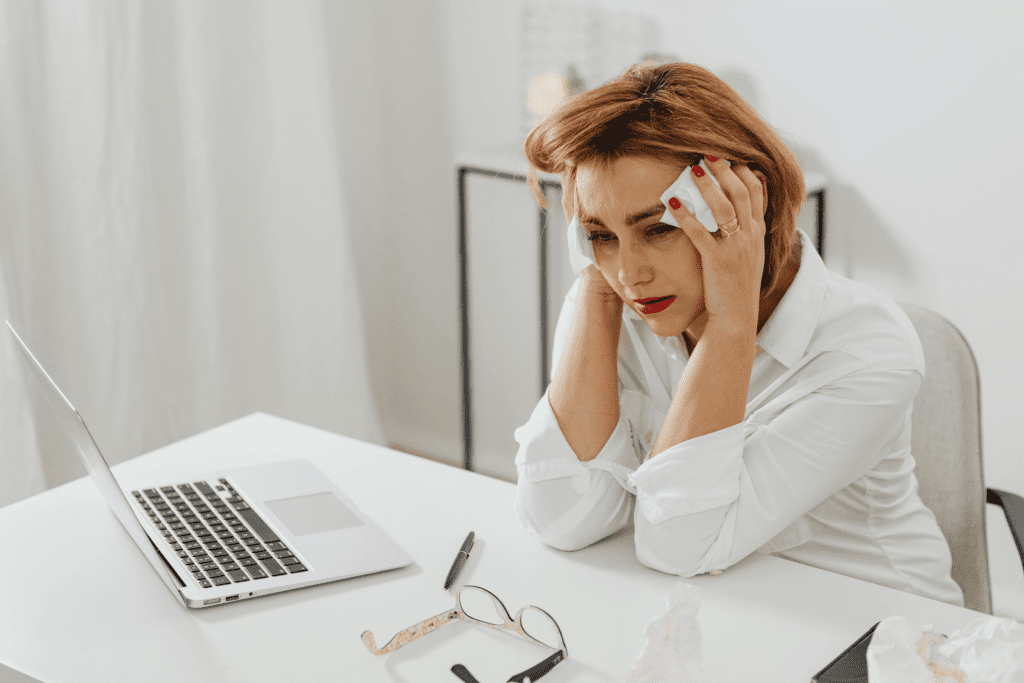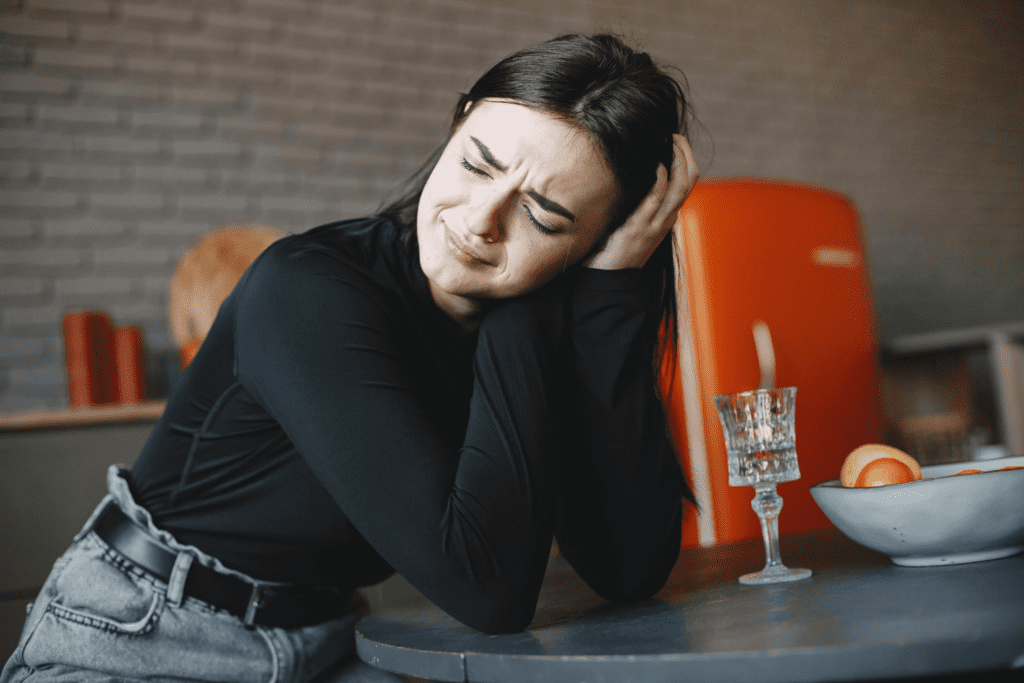Last updated on November 17th, 2024 at 10:09 pm
- 1. Understanding Shopping Addiction
- 1.1 Key Characteristics
- 1.2 Prevalence and Demographics
- 1.3 Underlying Causes
- 2. The Impact of Shopping Addiction
- 2.1 Financial Consequences
- 2.2 Emotional and Psychological Effects
- 2.3 Social and Interpersonal Impact
- 3. Treatment Approaches for Shopping Addiction
- 3.1 Cognitive Behavioral Therapy (CBT)
- 3.2 Psychodynamic Therapy
- 3.3 Motivational Interviewing
- 3.4 Family Therapy
- 4. Support Groups and Peer Support
- 4.1 12-Step Programs
- 4.2 Online Support Communities
- 5. Medication Options
- 5.1 Antidepressants
- 5.2 Mood Stabilizers
- 5.3 Anti-Addiction Medications
- 6. Lifestyle Changes and Self-Help Strategies
- 6.1 Financial Management
- 6.2 Stress Management
- 6.3 Building a Support Network
- 7. Preventing Relapse
- 7.1 Identifying Triggers
- 7.2 Creating a Relapse Prevention Plan
- 7.3 Ongoing Support
- 8. The Role of Technology in Treatment and Recovery
- 8.1 Apps and Software
- 8.2 Teletherapy
- 8.3 Virtual Reality Therapy
- Addiction Counseling for Shopping Addiction
- Mental Health Counseling for Compulsive Buying Disorder
- Cognitive Behavioral Therapy for Shopping Addiction
- Treatment Facility Options
- Substance Use Counselors and Shopping Addiction
- Shopping Addiction Recovery Programs
- Family Therapy Sessions in Shopping Addiction Treatment
- Shopping Addiction Mental Health Services
- Shopping Addiction Treatment Plans
- Educational Requirements for Addiction Counseling
- Career Paths in Addiction Counseling
- Addiction Counseling in a Variety of Settings
- Shopping Addiction Therapy Techniques
- Shopping Addiction Behavioral Interventions
- Role of Licensed Addiction Counselors
- Substance Abuse Counselors and Co-Occurring Disorders
- Shopping Addiction Treatment Resources
- Shopping Addiction Intervention Programs
- Equine Therapy for Shopping Addiction
- Substance Use Disorder Treatment for Shopping Addiction
- Licensure Requirements for Addiction Counselors
- Online Programs for Addiction Counseling
- Addiction Counseling in Treatment Facility Settings
- Behavioral Health Crisis Management in Shopping Addiction
- Addresses Concerns Related to Shopping Addiction
- Medical Care and Shopping Addiction
- Role of Law Enforcement in Addressing Shopping Addiction
- Certification Requirements for Substance Abuse Counselors
- Professional Practices for Addiction Counselors
- Role of Social Workers in Shopping Addiction Recovery
- Family Services in Treating Shopping Addiction
- Shopping Addiction Counseling Degree Programs
- Shopping Addiction and Co-Occurring Disorders
- Role of Addiction Counseling Services in Shopping Addiction
- Financial Counseling for Compulsive Shoppers
- Substance Use Counseling in Shopping Addiction
- Shopping Addiction Treatment Programs in Halfway Houses
- Range of Substance Use Treatment for Shopping Addiction
- Career Opportunities in Shopping Addiction Counseling
- Rewarding Career in Addiction Counseling
- Addiction Counseling for Alcohol Addiction and Shopping Addiction
- Healthy Behavior and Shopping Addiction Recovery
- Individual Therapy for Shopping Addiction
- Addiction Studies and Research in Shopping Addiction
- Managing Illicit Drug Use and Shopping Addiction
- Risky Situations and Shopping Addiction
- Mental Health Professional Practices in Shopping Addiction
- Conclusion
- Frequently Asked Questions
- What Are The Most Effective Treatments For Shopping Addiction?
- How Does Cognitive Behavioral Therapy Help Shopping Addiction?
- Can Medication Be Used To Treat Shopping Addiction?
- Are Support Groups Helpful For Shopping Addiction Recovery?
- What Role Does Financial Counseling Play In Shopping Addiction Treatment?
- What Are Common Triggers Of Shopping Addiction And How Can They Be Managed?
- How Does Shopping Addiction Affect Mental Health And Physical Health?
- What Types Of Therapy Are Recommended For Treating Shopping Addiction?
- Can Shopping Addiction Be Cured Completely?
- How Do Shopping Addiction Interventions Work?
- What Are The Licensure Requirements For Becoming An Addiction Counselor Specializing In Shopping Addiction?
- How Effective Is Family Therapy In Treating Shopping Addiction?
- What Strategies Can Help Prevent Relapse In Shopping Addiction Recovery?
- How Can Shopping Addiction Impact Relationships?
- What Is The Role Of A Licensed Addiction Counselor In Shopping Addiction Treatment?
- What Community Resources Are Available For Shopping Addiction Recovery?
- Are There Specialized Shopping Addiction Treatment Centers?
- What Are The Benefits Of Using Online Therapy Programs For Shopping Addiction?
- How Is Shopping Addiction Different From Substance Abuse Disorders?
- What Role Do Behavioral Modification Techniques Play In Treating Shopping Addiction?
Shopping addiction, also known as compulsive buying disorder or oniomania, is a serious mental health condition that can have devastating effects on a person’s life. While often dismissed as simply “retail therapy,” this disorder goes far beyond occasional splurges and can lead to severe financial, emotional, and interpersonal consequences.
This article will explore the nature of shopping addiction, its causes and effects, and most importantly, the various treatment options available to help those struggling with this condition.
Let’s discover effective Treatment For Shopping Addiction to regain control of your spending habits. Explore proven strategies and professional help to live a balanced life.
1. Understanding Shopping Addiction
Shopping addiction is characterized by an uncontrollable urge to shop and make purchases, often regardless of need or financial means. Unlike typical consumer behavior, compulsive shopping is driven by emotional factors rather than practical necessity.
1.1 Key Characteristics
Some common signs of shopping addiction include:
• Spending excessive time thinking about or engaging in shopping
• Buying items that are not needed or will never be used
• Feeling a rush or high from making purchases
• Hiding purchases or lying about spending habits
• Experiencing guilt, shame, or anxiety after shopping
• Continuing to shop despite negative consequences
1.2 Prevalence and Demographics
While precise statistics are difficult to obtain due to underreporting and lack of standardized diagnostic criteria, it’s estimated that shopping addiction affects approximately 5% of the population. Studies suggest it may be more common among women and typically begins in late adolescence or early adulthood.
1.3 Underlying Causes
Shopping addiction often stems from complex psychological factors, including:
• Low self-esteem or poor self-image
• Depression or anxiety
• Perfectionism
• Difficulty coping with negative emotions
• Feeling a lack of control in other areas of life
• Childhood experiences of deprivation or overindulgence
2. The Impact of Shopping Addiction
Left untreated, compulsive buying can have far-reaching consequences across various aspects of a person’s life.
2.1 Financial Consequences
The most obvious impact is financial strain, which may include:
• Overwhelming credit card debt
• Depleted savings accounts
• Bankruptcy
• Inability to pay for necessities
• Legal issues related to unpaid debts
2.2 Emotional and Psychological Effects
Shopping addiction can take a significant toll on mental health:
• Increased anxiety and depression
• Feelings of shame, guilt, and low self-worth
• Stress from hiding the behavior or its consequences
• Relationship conflicts due to financial strain or deceit
2.3 Social and Interpersonal Impact
Compulsive shopping can strain relationships and lead to social isolation:
• Trust issues with partners or family members
• Withdrawal from social activities due to financial constraints
• Loss of friendships due to borrowing money or neglecting relationships
3. Treatment Approaches for Shopping Addiction
While challenging, shopping addiction is treatable with proper intervention and support. A multi-faceted approach is often most effective.
3.1 Cognitive Behavioral Therapy (CBT)
CBT is considered one of the most effective treatments for shopping addiction. This approach helps individuals:
• Identify and challenge distorted thoughts related to shopping
• Develop healthier coping mechanisms for stress and negative emotions
• Learn to resist urges and impulses to shop
• Set realistic goals and create action plans for change
CBT can be conducted in individual or group settings, with some research suggesting group therapy may be particularly beneficial for shopping addiction.
3.2 Psychodynamic Therapy
This form of therapy explores unconscious motivations and past experiences that may contribute to compulsive shopping behaviors. It can help individuals:
• Understand the root causes of their addiction
• Process unresolved emotional issues
• Develop greater self-awareness and insight
3.3 Motivational Interviewing
This client-centered approach focuses on enhancing motivation for change. It can be especially helpful for individuals who are ambivalent about treatment or unsure of their ability to change.
3.4 Family Therapy
Involving family members in treatment can be crucial, as shopping addiction often affects the entire household. Family therapy can:
• Improve communication and trust
• Help family members understand the nature of addiction
• Develop strategies for supporting recovery as a unit
4. Support Groups and Peer Support
Support groups play a vital role in recovery from shopping addiction, offering a sense of community and shared experience.
4.1 12-Step Programs
Modeled after Alcoholics Anonymous, these groups provide a structured approach to recovery:
• Debtors Anonymous
• Spenders Anonymous
• Shopaholics Anonymous
These programs offer regular meetings, sponsorship, and a framework for personal growth and accountability.
4.2 Online Support Communities
For those who prefer anonymity or lack access to in-person meetings, online support groups can be valuable:
• Forums and message boards
• Social media groups
• Virtual meetings and webinars


5. Medication Options
While there is no specific medication approved for treating shopping addiction, certain pharmaceuticals may be helpful in addressing underlying mental health issues or reducing compulsive urges.
5.1 Antidepressants
Selective Serotonin Reuptake Inhibitors (SSRIs) have shown some promise in reducing compulsive shopping behaviors, particularly for individuals with co-occurring depression or anxiety.
5.2 Mood Stabilizers
For individuals with bipolar disorder who experience manic episodes of excessive spending, mood stabilizers may be beneficial.
5.3 Anti-Addiction Medications
Some medications used to treat substance addictions, such as naltrexone, are being studied for their potential in treating behavioral addictions like compulsive shopping.
6. Lifestyle Changes and Self-Help Strategies
In addition to professional treatment, individuals can implement various strategies to manage shopping addiction:
6.1 Financial Management
• Creating and sticking to a budget
• Using cash instead of credit cards
• Avoiding online shopping sites
• Working with a financial advisor
6.2 Stress Management
• Practicing mindfulness and meditation
• Engaging in regular exercise
• Pursuing hobbies and interests unrelated to shopping
6.3 Building a Support Network
• Confiding in trusted friends or family members
• Joining support groups or finding an accountability partner
• Seeking help from a therapist or counselor


7. Preventing Relapse
Recovery from shopping addiction is an ongoing process, and relapse prevention is crucial.
7.1 Identifying Triggers
Understanding personal triggers for compulsive shopping, such as stress, boredom, or specific emotions, can help individuals develop proactive coping strategies.
7.2 Creating a Relapse Prevention Plan
This may include:
• Strategies for managing urges
• A list of supportive people to contact
• Alternative activities to engage in when tempted to shop
7.3 Ongoing Support
Continuing to attend therapy sessions or support group meetings can help maintain long-term recovery and provide ongoing accountability.
8. The Role of Technology in Treatment and Recovery
As technology continues to advance, new tools are emerging to support recovery from shopping addiction.
8.1 Apps and Software
Various applications can help individuals track spending, block access to shopping sites, or provide motivation and support for recovery goals.
8.2 Teletherapy
Remote therapy sessions via video chat or phone can increase accessibility to treatment, especially for those in rural areas or with limited mobility.
8.3 Virtual Reality Therapy
Emerging research is exploring the potential of virtual reality in treating behavioral addictions, including exposure therapy for shopping addiction.
Addiction Counseling for Shopping Addiction
Addiction counseling is essential in managing shopping addiction. Effective addiction counseling utilizes strategies similar to those used for substance use disorders.
These strategies help individuals overcome problematic behavior by focusing on emotional triggers. They also work on building coping mechanisms to handle urges.
Mental Health Counseling for Compulsive Buying Disorder
Shopping addiction is recognized as one of the significant mental health conditions that can be debilitating if untreated. Mental health counselors assess the severity of the addiction and establish personalized treatment plans.
These treatment plans address co-occurring mental health disorders and compulsive behaviors. They also help in managing emotional responses associated with shopping addiction.
Cognitive Behavioral Therapy for Shopping Addiction
Cognitive behavioral therapy (CBT) is a highly effective therapeutic technique for treating shopping addiction. It involves identifying negative thought patterns and replacing them with healthier behaviors.
Individual counseling sessions help individuals understand their emotional triggers. They also support building healthier coping mechanisms to reduce compulsive shopping.
Treatment Facility Options
Shopping addiction treatment centers offer specialized care for compulsive buying disorder therapy. Treatment options vary in type, ranging from residential facilities to outpatient services.
These facilities provide comprehensive care addressing both behavioral health conditions and physical health. This holistic approach ensures a more effective recovery process.
Substance Use Counselors and Shopping Addiction
The skills of substance use counselors are highly relevant in treating shopping addiction. They have experience with various settings, including juvenile detention facilities and outpatient counseling programs.
Counselors use evidence-based therapies to treat the emotional causes of shopping addiction. These techniques help individuals build a solid foundation for lasting recovery.


Shopping Addiction Recovery Programs
Shopping addiction recovery programs use individual counseling to help develop recovery plans. Licensed addiction counselors provide expert care and relapse prevention skills.
Ongoing counseling helps manage urges and reduces relapse risk. Support from addiction counseling professionals provides a structured recovery process.
Family Therapy Sessions in Shopping Addiction Treatment
Family therapy sessions play a crucial role in shopping addiction recovery. They help rebuild trust and support within family members.
This approach improves communication, which is vital for effective recovery. Supporting healthy relationships enhances the recovery process.
Shopping Addiction Mental Health Services
Mental health services for shopping addiction are available within mental health centers and private practice settings. Licensed counselors, social workers, and other mental health professionals provide individual therapy.
Traditional therapy sessions help create a supportive environment for individuals to address their addiction. This comprehensive support is vital for sustainable recovery.
Shopping Addiction Treatment Plans
Treatment planning is critical for effective shopping addiction treatment. Addiction counselors create personalized treatment plans tailored to individual needs.
These plans include therapy sessions, family involvement, and relapse prevention techniques. Personalized approaches make treatment more effective.
Educational Requirements for Addiction Counseling
A degree in addiction counseling is a prerequisite for those pursuing this career. Educational requirements include a counseling degree or an associate degree in counseling.
Higher levels of licensure require addiction counselor certification or doctoral degrees. Meeting licensure requirements ensures professionals are well-prepared for the role.
Career Paths in Addiction Counseling
The field of addiction counseling offers various career opportunities. Roles include addiction specialists, substance use counselors, and therapy experts.
These careers are rewarding for those wanting to help individuals in recovery. The work remains fulfilling for those passionate about making a difference.


Addiction Counseling in a Variety of Settings
Addiction counseling services are available in different settings like mental health centers and correctional facilities. Addiction counselors also work in halfway houses and outreach programs.
These counselors provide addiction counseling access to millions of people. This broad availability helps ensure effective treatment for those in need.
Shopping Addiction Therapy Techniques
Therapy techniques for shopping addiction include individual sessions, equine therapy, and behavioral modification strategies. These techniques establish healthy behavior patterns.
Addressing underlying issues helps individuals move towards long-term recovery. A tailored approach ensures care suited to individual needs.
Shopping Addiction Behavioral Interventions
Behavioral interventions often combine individual therapy with group support. Methods like behavioral modification help resist compulsive urges.
Positive relationship-building supports establishing healthy coping mechanisms. These approaches are effective in managing stress and reducing addiction.
Role of Licensed Addiction Counselors
Licensed addiction counselors play an essential role in managing shopping addiction. They support individuals through the treatment process.
They offer comprehensive care and facilitate group therapy. Their clinical experiences address complex cases effectively.
Substance Abuse Counselors and Co-Occurring Disorders
Substance abuse counselors treat co-occurring mental health disorders common in shopping addiction. They focus on mental health issues like mood disorders or anxiety.
Therapy for substance use adapts to help treat shopping addiction. The similarities between these addictions make treatment more effective.


Shopping Addiction Treatment Resources
Shopping addiction treatment resources are available for recovery support. These include addiction counseling access through community programs.
Private practice sessions also provide personalized care. These resources ensure those struggling receive necessary support.
Shopping Addiction Intervention Programs
Shopping addiction intervention programs help individuals recognize the need for support. Motivational interviewing and other interventions guide individuals towards treatment.
These programs initiate the recovery process. They provide essential resources and ongoing support for those in need.
Equine Therapy for Shopping Addiction
Equine therapy offers a unique approach in shopping addiction treatment. It helps build healthy relationships and develop communication skills.
The therapeutic process fosters emotional healing. This addresses underlying emotional issues related to shopping addiction.
Substance Use Disorder Treatment for Shopping Addiction
Substance use disorder treatment methods apply well to shopping addiction. Treatment plans include behavioral therapy and abstinence techniques.
These approaches help regain control over shopping behaviors. They highlight the flexibility of different addiction treatment strategies.
Licensure Requirements for Addiction Counselors
Addiction counseling professionals must meet specific licensure requirements. Licensed counselors need experience in counseling sessions.
Certification and supervised clinical experiences are essential components. These requirements ensure competency in addiction counseling.
Online Programs for Addiction Counseling
Online programs provide flexibility for addiction counseling education. They help fulfill academic requirements for addiction certification.
These programs include coursework on behavioral disorders and addiction. Completing them allows greater flexibility for students.


Addiction Counseling in Treatment Facility Settings
Counseling in treatment facilities focuses on shopping addiction services. Facilities offer individual counseling and substance use treatment options.
The level of care is crucial for those needing intensive support. Group therapy also aids in the recovery journey.
Behavioral Health Crisis Management in Shopping Addiction
Shopping addiction often leads to behavioral health crises. Licensed counselors work together to manage these crises.
Intervention strategies help regain stability. Behavioral interventions ensure a structured approach to crisis management.
Addresses Concerns Related to Shopping Addiction
Addiction counselors actively address concerns related to shopping addiction. They create individualized treatment strategies for each client.
Individual sessions and family therapy support recovery. This comprehensive approach is vital in rebuilding healthy behaviors.
Medical Care and Shopping Addiction
Medical professionals may be involved in treating shopping addiction. Co-occurring conditions like mood disorders require medical intervention.
Consultation with surgeons may be necessary for complications. Multidisciplinary care ensures effective treatment.
Role of Law Enforcement in Addressing Shopping Addiction
Law enforcement may be involved when shopping addiction leads to legal issues. Collaboration between addiction specialists and law enforcement ensures proper intervention.
These interventions help ensure safety and rehabilitation. They assist those affected in navigating the legal consequences of addiction.
Certification Requirements for Substance Abuse Counselors
Certification for substance abuse counselors involves completing a counseling degree. Supervised clinical hours are part of the requirements.
Certification ensures readiness to address addiction complexities. Completing this process prepares counselors for expert care.


Professional Practices for Addiction Counselors
Professional practices require adherence to ethical standards. Addiction counselors must stay committed to ongoing education.
Participation in addiction studies enhances their skills. This approach helps provide effective treatment and client support.
Role of Social Workers in Shopping Addiction Recovery
Social workers are instrumental in shopping addiction recovery. They provide additional community support alongside addiction counselors.
Their work addresses social aspects of addiction. Outreach programs connect clients with essential resources.
Family Services in Treating Shopping Addiction
Family services are vital in shopping addiction treatment. Counselors and social workers offer family therapy as part of recovery.
Family members receive guidance on supporting their loved ones. Positive relationships enhance the overall recovery process.
Shopping Addiction Counseling Degree Programs
Degree programs for addiction counseling offer specialized courses. These courses include practical techniques for managing compulsive behaviors.
A degree equips students with the skills for this field. Clinical techniques prepare them for addiction counseling.
Shopping Addiction and Co-Occurring Disorders
Shopping addiction often co-occurs with anxiety or depression. A comprehensive treatment plan addresses both conditions.
Addiction experts create individualized plans for each person. This ensures all aspects of well-being are addressed.
Role of Addiction Counseling Services in Shopping Addiction
Addiction counseling services provide a foundation for recovery. These services can be accessed in person or online.
Counseling helps individuals develop better behavior understanding. They also build strategies for sustained recovery.
Financial Counseling for Compulsive Shoppers
Financial counseling is crucial in treating compulsive shoppers. Licensed counselors work to establish budgets and manage debts.
This service is part of holistic recovery programs. It helps clients build a healthier relationship with money.
Substance Use Counseling in Shopping Addiction
Substance use counseling techniques adapt to shopping addiction. Individual sessions help understand similarities with substance disorders.
Counseling programs provide tailored interventions. These interventions meet unique needs effectively.
Shopping Addiction Treatment Programs in Halfway Houses
Halfway houses provide structured environments for recovery. Programs here focus on relapse prevention skills.
Continuous support and guidance are provided. Clients transition back into everyday life effectively.


Range of Substance Use Treatment for Shopping Addiction
Substance use treatment options address shopping addiction effectively. Methods include abstinence techniques and individual therapy.
Group counseling also aids recovery. These adapted methods are highly effective.
Career Opportunities in Shopping Addiction Counseling
Career opportunities in addiction counseling are vast. Those with degrees can pursue roles as addiction specialists.
This work is rewarding for those passionate about helping others. The opportunities extend to multiple addiction-related roles.
Rewarding Career in Addiction Counseling
Pursuing addiction counseling offers a rewarding career. Professionals help people overcome shopping and substance addictions.
The work is challenging but fulfilling. Making a significant difference is the main focus.
Addiction Counseling for Alcohol Addiction and Shopping Addiction
Addiction counseling for alcohol and shopping addictions share similarities. Evidence-based therapies like CBT address both issues.
Understanding commonalities helps provide comprehensive care. Clients receive similar techniques that address core addiction behaviors.
Healthy Behavior and Shopping Addiction Recovery
Developing healthy behaviors is key in recovery. Counselors replace compulsive shopping with positive activities.
This helps individuals build resilience. Avoiding triggers becomes more manageable over time.
Individual Therapy for Shopping Addiction
Individual therapy is a key recovery component. One-on-one sessions help uncover root causes of behaviors.
These sessions are tailored for each client. Personalized therapy supports long-term recovery.
Addiction Studies and Research in Shopping Addiction
Addiction studies help develop new treatment approaches. Research aids understanding of addiction complexities.
Counseling professionals use these insights in their practice. Staying informed ensures effective treatment delivery.
Managing Illicit Drug Use and Shopping Addiction
Illicit drug use and shopping addiction may co-occur. Treatment counselors manage both through comprehensive care plans.
This dual approach is essential for support. Addressing multiple challenges is vital for recovery.
Risky Situations and Shopping Addiction
Shopping addiction can lead to risky situations like financial instability. Counselors provide strategies for navigating these challenges.
Relapse prevention and therapeutic interventions mitigate risks. Healthy decision-making is a core focus.
Mental Health Professional Practices in Shopping Addiction
Mental health professionals play a key role in shopping addiction treatment. Counselors offer a range of services for support.
Their expertise ensures appropriate care for recovery. Family support is also part of this comprehensive approach.
Conclusion
While shopping addiction can have severe consequences, there is hope for recovery. Through a combination of professional treatment, support groups, lifestyle changes, and ongoing commitment to change, individuals can overcome compulsive shopping behaviors and build healthier relationships with money and material possessions.
As with any addiction, seeking help is the first and most crucial step towards reclaiming control and improving overall quality of life.
Frequently Asked Questions
What Are The Most Effective Treatments For Shopping Addiction?
The most effective treatments for shopping addiction often include cognitive behavioral therapy (CBT), individual counseling sessions, and treatment programs designed to address compulsive buying behavior. CBT helps individuals recognize and modify their problematic behavior, providing strategies to avoid excessive spending.
Treatment also commonly involves addiction specialists who provide behavioral interventions to manage triggers. Engaging in family therapy sessions or support groups can also support recovery by establishing a positive relationship framework.


How Does Cognitive Behavioral Therapy Help Shopping Addiction?
Cognitive Behavioral Therapy (CBT) is widely used for shopping addiction treatment as it targets the thoughts that fuel compulsive shopping. This therapy helps individuals identify triggers and change their problematic purchasing behaviors.
Through structured sessions, a licensed addiction counselor works to modify both thought patterns and behaviors, providing individuals with relapse prevention skills. Studies on CBT have shown that it offers positive outcomes for compulsive behaviors like shopping addiction by creating a healthier mental outlook.
Can Medication Be Used To Treat Shopping Addiction?
While there is no specific medication for shopping addiction, antidepressants may help when the condition is linked to co-occurring mental health disorders, such as depression or anxiety. According to addiction specialists, SSRIs (selective serotonin reuptake inhibitors) can sometimes help stabilize mood disorders and reduce the urge to shop compulsively.
Health professionals from WebMD suggest that medication works best when combined with therapy, particularly in addressing emotional triggers.
Are Support Groups Helpful For Shopping Addiction Recovery?
Support groups are beneficial for individuals recovering from shopping addiction because they offer community and accountability. Support groups often follow models similar to 12-step programs used in substance use disorder recovery.
In these groups, participants can share experiences, setbacks, and successes, which helps in building a solid foundation for lasting recovery. For many individuals, support groups provide a non-judgmental setting where they can openly discuss their struggles and learn coping mechanisms.
What Role Does Financial Counseling Play In Shopping Addiction Treatment?
Financial counseling plays a crucial role in helping individuals manage the debt incurred from shopping addiction. Certified financial counselors assist individuals in creating realistic budgets, negotiating with creditors, and developing healthy financial habits.
Addressing the financial aspect is often a vital part of treatment because it reduces the stress that typically triggers relapse. Organizations like NFCC, which provides financial health resources, are effective in supporting individuals seeking to regain control over their finances.
What Are Common Triggers Of Shopping Addiction And How Can They Be Managed?
Shopping addiction is often triggered by emotions like stress, loneliness, or boredom. It is also influenced by external factors like sales promotions and online shopping accessibility.
Management of these triggers involves behavioral therapy and relapse prevention skills. A licensed mental health professional can help identify triggers and establish healthier coping mechanisms, such as mindfulness techniques or substituting other activities for shopping urges.
How Does Shopping Addiction Affect Mental Health And Physical Health?
Shopping addiction negatively affects both mental and physical health. Mentally, individuals may experience increased anxiety, guilt, and depression, especially when their spending behavior leads to financial hardship.
Physically, shopping addiction can lead to high stress levels, which may contribute to health conditions like hypertension. The National Institute of Mental Health has found that untreated shopping addiction can often co-occur with anxiety disorders and cause severe emotional distress.
What Types Of Therapy Are Recommended For Treating Shopping Addiction?
Besides cognitive behavioral therapy, other effective therapeutic approaches include individual counseling, family therapy, and group therapy. Family therapy can address dynamics that may contribute to shopping addiction, while group therapy offers peer support in a structured environment.
According to experts at Mayo Clinic, individual sessions can be tailored to the person’s unique circumstances, providing specialized care that addresses both the underlying mental health conditions and compulsive behaviors.
Can Shopping Addiction Be Cured Completely?
Shopping addiction, like many behavioral addictions, cannot always be cured completely, but it can be effectively managed. Long-term recovery involves ongoing counseling and monitoring to help prevent relapse.
Addiction counselors often emphasize the importance of lifestyle changes, including mindfulness practices and family support, to sustain recovery. Studies conducted by American Psychological Association indicate that individuals in active treatment have higher success rates at maintaining abstinence from compulsive shopping behaviors.
How Do Shopping Addiction Interventions Work?
Shopping addiction interventions aim to help an individual recognize their problematic behavior and motivate them to seek treatment. These interventions are often led by a licensed addiction counselor or family members, and focus on expressing concern without being confrontational.
The goal is to get the individual into treatment before the addiction worsens. Experts from Intervention Services explain that structured interventions can increase the likelihood of seeking professional help and decrease the negative impact on family relationships.
What Are The Licensure Requirements For Becoming An Addiction Counselor Specializing In Shopping Addiction?
To become an addiction counselor specializing in shopping addiction, you must meet specific licensure requirements, including completing a degree in addiction counseling and supervised clinical experiences. Requirements vary by state, but typically include passing an exam and accruing hours in clinical practice.
The National Association for Alcoholism and Drug Abuse Counselors outlines certification requirements, including educational qualifications, training, and the need for continuing education credits to maintain licensure.
How Effective Is Family Therapy In Treating Shopping Addiction?
Family therapy is highly effective in treating shopping addiction as it helps rebuild trust and establish healthy communication patterns within the family unit. Family involvement can provide emotional support and address any family dynamics contributing to the addiction.
A licensed family therapist plays a crucial role in facilitating these sessions, ensuring everyone has the opportunity to express their concerns and learn coping mechanisms that can benefit the entire family during the recovery process.
What Strategies Can Help Prevent Relapse In Shopping Addiction Recovery?
Relapse prevention strategies for shopping addiction often include ongoing therapy, mindfulness practices, and financial management. Addiction counselors suggest maintaining a daily log to track spending and potential triggers.
Engaging in activities that do not involve shopping, such as volunteering or exercise, can also serve as preventive measures. According to Harvard Health, cultivating a positive routine and healthy relationships significantly decreases the risk of relapse in behavioral addictions like shopping.
How Can Shopping Addiction Impact Relationships?
Shopping addiction can put a significant strain on relationships, often leading to mistrust and frequent arguments, particularly when financial problems arise. Secretive spending and accumulating debt may create a cycle of lies and betrayals, which is emotionally taxing for all involved.
The American Counseling Association states that involving family in therapy can help repair these damages, improve communication, and work towards establishing a positive relationship built on honesty.
What Is The Role Of A Licensed Addiction Counselor In Shopping Addiction Treatment?
A licensed addiction counselor plays an active role in evaluating and treating shopping addiction by providing individualized care and developing recovery plans. The counselor’s work often involves comprehensive assessment, individual sessions, and therapeutic interventions.
According to the Substance Abuse and Mental Health Services Administration (SAMHSA), addiction counselors use evidence-based therapies to ensure that individuals receive the care they need for their mental health conditions, including co-occurring disorders.
What Community Resources Are Available For Shopping Addiction Recovery?
Community resources for shopping addiction recovery include support groups, financial counseling services, and behavioral health centers that offer addiction treatment. Local mental health centers can be a valuable resource for those without insurance coverage.
The National Council for Mental Wellbeing offers various programs for those in need of expert care or counseling, ensuring individuals have access to comprehensive care, which may include both therapy and financial assistance.
Are There Specialized Shopping Addiction Treatment Centers?
Yes, there are specialized treatment centers that focus on shopping addiction. These centers typically offer a range of services, including individual therapy, family sessions, and group therapy tailored specifically to treat compulsive buying disorder.
Specialized centers like Promises Behavioral Health provide structured environments where individuals can receive treatment that addresses both the psychological and financial impacts of shopping addiction, offering a more comprehensive care approach.
What Are The Benefits Of Using Online Therapy Programs For Shopping Addiction?
Online therapy programs offer flexibility and access for individuals who may not have local treatment options. This is particularly helpful for those who have a busy schedule or who find it challenging to leave home for regular therapy sessions.
Providers such as BetterHelp have certified mental health professionals who offer individual counseling sessions through video or messaging, making treatment more accessible while maintaining privacy and confidentiality.
How Is Shopping Addiction Different From Substance Abuse Disorders?
Shopping addiction differs from substance abuse disorders in that it is a behavioral addiction rather than a physical dependency on a substance. However, the treatment process for both involves similar strategies like cognitive behavioral therapy and relapse prevention techniques.
According to MedlinePlus, while physical withdrawal symptoms aren’t present in shopping addiction, the psychological challenges, such as cravings and impulsive behaviors, often require professional counseling to manage effectively.
What Role Do Behavioral Modification Techniques Play In Treating Shopping Addiction?
Behavioral modification techniques are essential in treating shopping addiction, as they help the individual alter their behavior and establish healthy habits. These techniques involve replacing the compulsive behavior of shopping with healthier activities that provide emotional fulfillment.
A mental health professional, such as those at Cleveland Clinic, uses these techniques in combination with other therapies to promote long-term changes, enabling individuals to manage their addiction more effectively and maintain healthier behavior patterns.




